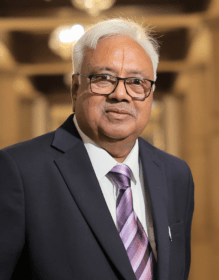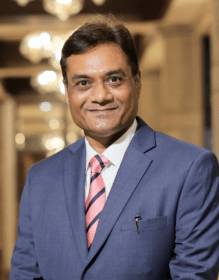
MAT Issue spooked the Markets
In the latest Budget Mr. Arun Jaitley clearly mentioned that the exemption on MAT would be effective from 1st April 2015 but it remained unnoticed by the market participants. Only when few FIIs were issued notices from Income Tax Dept., the controversy kicked off and as a result FIIs turned to ‘sell’ mode. Inevitably our domestic market felt the heat and started spiraling downward from 15th April 2015, when Nifty had reached a high of 8844 and within 15 days 800 points were eroded. The controversy started at very crucial time; when almost all the global markets were enjoying new highs, the Indian domestic market was showing tremendous weakness resulting in 800 points fall in Nifty. This crash caused way more damage to individual stock values than the Index. Market sentiments expected Nifty to fall further and hover around 7500 level.
Government’s ‘damage-control’ activities
Government took few days to respond to this issue. They clarified in the Parliament that the Income Tax Department had sent notices to 68 Foreign Institutional Investors (FIIs) for payment of dues totaling Rs 602.83 crores towards Minimum Alternate Tax (MAT) and the figure of Rs. 40,000 crores (that was ascertained by the media) was imaginary. The applicability of MAT provisions is a legal issue and wherever the cases require the same will be applied. Investors coming from nations with which India has a double taxation avoidance agreement (DTAA) such as Mauritius and Singapore may be exempt from this as there is no tax on capital gains.
In 2010, the Authority for Advanced Rulings (AAR) ruled in a case that MAT did not apply to foreign companies that didn”t have a place of business in India. But in August 2012, AAR ruled that MAT should be levied on FIIs. The present government is largely going by the precedent set in case of Castleton Investments, where AAR gave a verdict, that Castleton is liable to pay MAT when it transferred shares from a Mauritius entity to a Singapore entity. Castleton Investments is owned by the Wellcome Limited of UK that held shares of Glaxo India which it transferred to its Singapore entity as part of the post-merger restructuring of Glaxo and Burroughs Wellcome.
From a policy point of view, there was a grey area on whether FIIs are liable to pay MAT. Thus, AAR levied it and the government of the day did not clarify. The matter is pending in the Supreme Court now.
In reply to discussions on the Finance Bill in the Rajya Sabha, Finance Minister Mr. Arun Jaitley had announced the constitution of a panel headed by Judge A. P. Shah. While Jaitley did not set any timeframe for the panel to submit its report, it is expected the committee will provide recommendations expeditiously. Accordingly, the government has already constituted a three-member committee under retired judge A.P. Shah to see whether minimum alternate tax (MAT) can be applied on foreign portfolio investors (FPIs). The terms of reference of the committee, however, does not include any other so-called legacy issues.
The formation of a high level committee by the Government in this matter is a major shift in Government’s attitude. Recently, Government had made it clear that they would not interfere in the matter under any circumstances and that the FIIs may have to go to the court directly to resolve the matter. This matter would ultimately be decided by the Court itself but at least Government has acted proactively by forming a committee whose recommendation would matter in resolving the case.
The AP Shah committee, formed by the government has got cracking on its task. The panel has invited recommendations and is setting up meetings with different stakeholders to meet the expectations that a report can be issued as quickly as possible to resolve the matter.
The Supreme Court will, however, decide the issue based on the Law as it exists and may not be influenced by the committee’s recommendations. The committee may recommend to the government to either change the law or have CBDT (Central Board of Direct Taxes) issue clarifications. The Shah panel will also meet CBDT officials, including income-tax officers who have raised MAT demands.
After setting up the committee the Income Tax Department has put on hold all fresh notices in these kinds of cases. The recovery of demand aggregating about Rs 603 crore might also not be pursued. Therefore, we all will have to wait for the developments of the committee and the court ruling in this matter of MAT, which is one of the major headwinds in our domestic markets.







